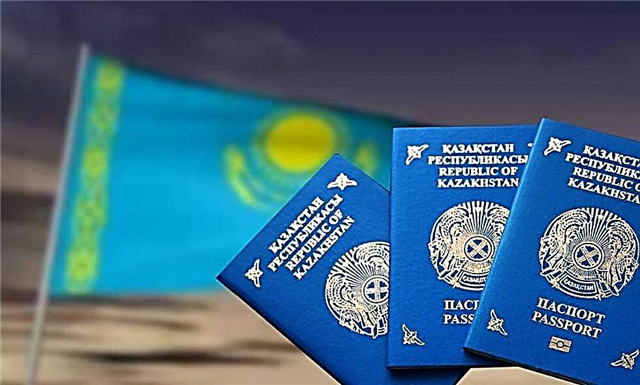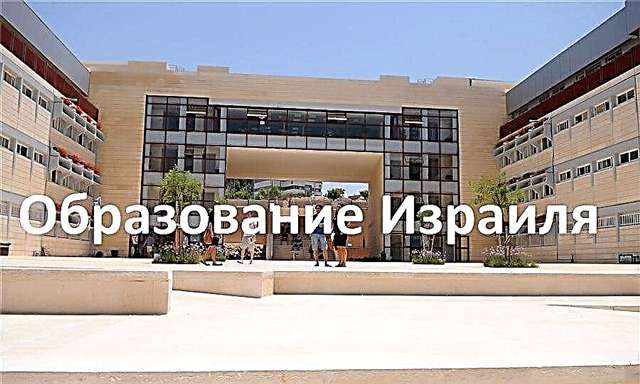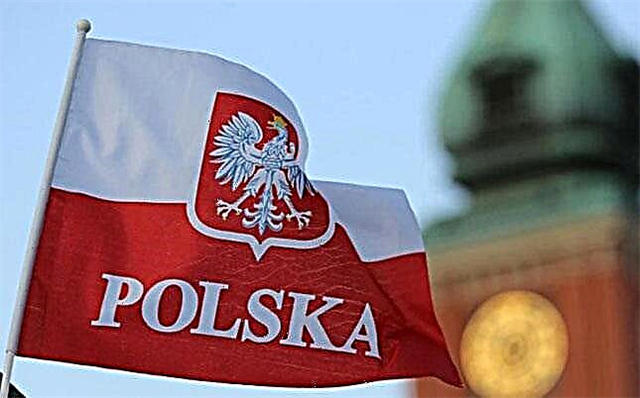The reasons people are forced to leave their homes are most often due to external factors: wars, natural disasters, ethnic conflicts. But, although many manage to successfully assimilate in the new conditions, over time, when the situation in their homeland improves, the majority strives to return. Over the past 10 years, the Polish government has intensified its activities on the resettlement program. The way repatriation to Poland takes place has its own characteristics and historical background.

Legislative basis
Repatriation to Poland is usually called the process of returning home citizens of other countries who are Poles by nationality. The current legislation of the Republic of Poland regulates the following issues:
- categories of persons who can become repatriates;
- grounds and peculiarities of issuing repatriation visa permits;
- the rights of citizens who are returned under this program;
- assistance to repatriates.
The law on providing indigenous Poles with the opportunity to return to their ancestral homeland came into force in January 2000. And in 2021, amendments to the Law on Repatriation were published and came into effect, significantly increasing assistance and expanding the rights of migrants.
This document refers to the number of repatriates persons of Polish origin and who arrived in Poland on the basis of a certain type of visa for the purpose of settling on the territory of the country for permanent residence. The Return Home program runs until 2021.
In 2021, the Polish Sejm adopted amendments that are designed to significantly facilitate the integration of indigenous Poles and their adaptation to the new conditions. For this purpose, the Council for Repatriates was created, which took on an advisory function. In addition, adaptation centers have opened in different regions of the country, in which newcomers can study the Polish language, undergo training in a particular specialty.
The new amendment to the law also significantly simplifies the procedure for obtaining citizenship. The benefits that migrants who arrived in the country on a repatriate visa can count on have also undergone changes. So, in 2021 they are provided with:
- 600 zloty (142 euros) - monthly allowance for the first six months of residence in Poland;
- PLN 4,000 (€ 947) - a lump sum payment for each family member. You can spend these funds on solving the housing issue;
- PLN 25,000 (EUR 5,920) - one-time help when buying your own house or apartment;
- 6,000 zlotys (1,420 euros) - for the renovation of the living quarters.
In some cases, the amount of payments may vary on an individual basis. Immigrants can apply for financial assistance within two years after acquiring Polish citizenship.
What are the conditions for taking part in the program?
The right to return to their historical homeland can be exercised by persons who provide the following evidence:
- in the old version of the law - knowledge of the Polish language, knowledge of the history of the Republic of Poland and its culture; in the new version, repatriates have the opportunity to learn the language already in the process of adaptation, that is, after moving;
- Polish origin (at least one of the relatives on the paternal or maternal side must be a Pole: grandmother, great-grandmother, great-grandfather, grandfather, father, mother).
This also includes candidates who once belonged to Polish citizenship, but due to circumstances beyond their control have lost it. It is very important that the grandparent or parent of such a person is also Pole.
If the interested citizen has previously renounced Polish citizenship of his own free will, he will be able to take part in the repatriation program only if he proves through the court that the decision to refuse was made against his will.
In accordance with the legislation, children of repatriates receive the right to acquire Polish citizenship automatically.
If only one of the two parents can become a participant in the program, then the second must write a statement that he is not opposed to the child adopting the citizenship of the Republic of Poland.
This procedure is carried out in the presence of the consul.

The law also provides an indication of who has no chance of getting a repatriation visa:
- persons who have not confirmed their Polish origin;
- those who once already received the right to participate in the program, but lost it on their own initiative;
- those who left Poland on the basis of the 1944-1957 repatriation agreements. between the Republic of Poland and the USSR.
Persons who, while staying abroad, committed unlawful acts against the Polish state or violated human rights prescribed in the relevant Convention, will not be able to return to their homeland.
How is the repatriation process going?
The law concerning the resettlement program for indigenous Poles clearly limits its geography. Thus, residents of the following states and regions can take part in it:
- Kazakhstan,
- Georgia
- Azerbaijan,
- Armenia,
- Turkmenistan,
- Kyrgyzstan,
- Tajikistan,
- Uzbekistan,
- Russian part of Siberia.
To be able to make an application, a candidate must be registered on a permanent basis in one of the listed regions.
Application procedure
The main condition for submitting an application for repatriation is confirmation by the candidate that there are grounds for settling in Poland for permanent residence. The evidence can be:
- An invitation certified by a notary and issued by an individual, commune, legal entity. This document contains information that the applicant has a place of residence. On its basis, the repatriate is also assigned a financial allowance. For this reason, it is very important that the invitation contains the following information:
- conditions and place of residence (for example, rented apartment, hostel, etc.);
- financial support (in particular, interested in the nature of the proposed job or the availability of employment opportunities);
- the possibility of receiving payments for settling in a new place.
- A document confirming the ownership of real estate in the Republic of Poland.
- Availability of means for subsistence in the country, which can be confirmed by a work permit, labor contract.

After examining the information and facts obtained from the documents and during the conversation, as well as analyzing the evidence presented, the consul concludes whether the candidate really has the right to obtain Polish citizenship as a repatriate.
After that, the application for a visa and all the justifications for its issuance are transferred to the Ministry of Internal Affairs of Poland - it is here that the final decision is made on whether the applicant will receive a visa stamp of the required sample.
But before this happens, the full package of documents will be sent to some other authorities, where it will be confirmed that the candidate does not pose a threat to the state, and also that all the documents submitted by him are authentic. If the information is not confirmed, this will be enough to refuse a repatriation visa.
In general, the process for immigrants from Russia and other specified countries can last at least a year.
The repatriate visa is put in the passport. It is one-time and is valid for only 12 months.
During this time, the migrant must cross the Polish border and obtain citizenship of the Republic of Poland.Of course, the Polish passport is not issued immediately, but a new member of the society can already enjoy all the rights on an equal basis with local residents.
Arriving at the place of new residence, the repatriate must:
- to register with the local registry office, namely, to certify a marriage certificate, birth certificate, divorce certificate and other civil status papers. All documents must be accompanied by a translation into Polish;
- submit an application to the Department for Citizens' Rights in your voivodeship, where, on the basis of an extract from the registry office, he will be issued a certificate of conferring civil status;
- to issue a residence permit and a passport.
Preparation of the necessary documents
The most important of the entire list of documents for participation in the repatriation program will be confirmation of Polish origin. Natives of Kazakhstan and other countries indicated in the list above can do this using the following papers:
- documents with a mark of belonging to Polish nationality, issued by local authorities;
- acts of civil status;
- baptismal metrics;
- certificates of military service in the Polish army;
- documents proving that the applicant was deported from the Republic of Poland;
- evidence of ethnic persecution;
- certificates of rehabilitation of a deported citizen, if they confirm Polish roots;
- documents issued by the civil services of other countries with a mark of belonging to the Polish nationality.
It is understood that all submitted documents must be issued by the following authorities:
- state structures of modern Poland or its predecessors in the legal sense;
- a church;
- until December 31, 1991 - USSR.
All papers must be submitted in their original form. If the evidence issued during the Soviet era is lost, it will be impossible to replace it in a modern state. Each of the submitted documents must be translated and apostilled (except for certificates and papers with the seals of the Soviet Union).
To send a request to participate in a resettlement program, you must clearly know what documents are needed for this purpose. You will need:
- Statement.
- Evidence of Polish origin.
- Confirmation of housing availability.
- Certificate of absence of tax arrears.
- Certificate of good conduct.
- Copy of the passport.
- Photo.
- Other documents that the consulate may request.
Summarizing
All immigrants under the repatriation program are entitled to certain benefits and assistance from the Polish government. In particular, they are provided with:
- reimbursement of travel expenses to the country (the cost of a second class train ticket is paid regardless of how the repatriate entered the country);
- payment of funds for the arrangement (purchase of furniture, household appliances and other household items);
- repair manual.
In addition to material assistance, the repatriate receives:
- the opportunity to take free courses to master a new profession or to confirm a diploma for an old one;
- assistance in finding a job;
- the possibility of taking language courses free of charge;
- other types of assistance.
In addition, a moving citizen receives temporary housing. For a period of up to three months, he settles in a special center for displaced persons. If during this time it was not possible to find another place to stay, he can extend the period of his stay in the center for another three months.











